LATEST INSIGHTS
Your Present Location: LATEST INSIGHTS-
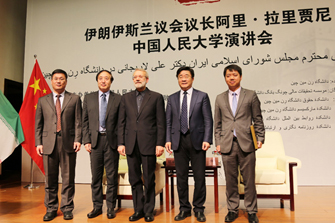
Wang Peng: China-Iran to deepen strategic trust and cultural exchanges
At this strategically meaningful moment, a luxury high-ranking delegation came to Beijing from Teheran directly. This 40-top-official team includes Iranian Islamic Parliamentary Speaker Dr. Ali Larijani, Foreign Minister Mohammad Javad Zarif and a dozen of ministers and vice-ministers in energy, petroleum, transportation, finance, the CEO of Iranian central bank, and so forth.
2019-02-22 -
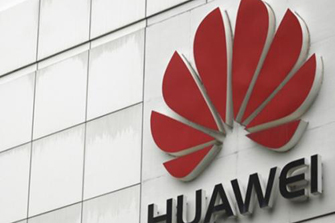
Ding Gang: Huawei’s uphill battle in going global
Whether Huawei is a Chinese company or a global corporation is a question worth pondering. Started as a Chinese company, Huawei aimed to go global, but never lost its national identity. Being global means the company's investments, technology, human resources, products and services as well as profits are derived from the international market.
2019-02-21 -
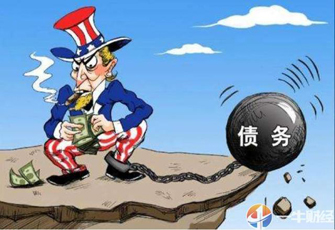
Wang Wen: The US can’t let debt cast shadow on its economy
In the long run, debt expansion propels favorable policies that stimulate the economy. The fiscal deficit is a persistent problem with a protracted history. Since former president Ronald Regan, US presidents have all adopted expansive fiscal policy. The US government has to borrow new debt to pay back the old, creating rollover risks. The country's low savings and high consumption model has also driven the US to keep large amounts of debt.
2019-02-21 -
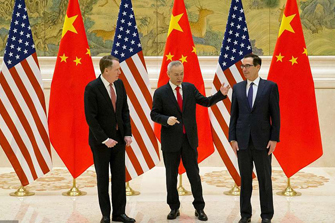
Liu Zhiqin: Countries need to work together to 'CURE' world illnesses
The recent trade talks between China and the United States ended on February 15 in Beijing. The outcome of this round of negotiations has attracted much attention from the international business community. As expected by most experts, the talk yielded a positive result. And it was announced that further talks will be held soon.
2019-02-21 -
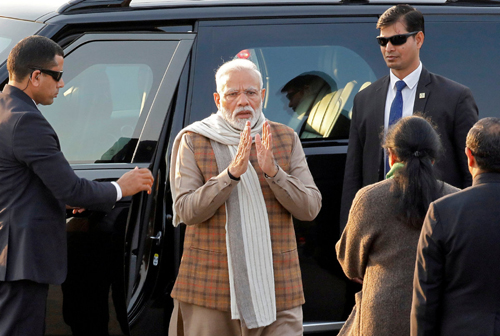
Lin Minwang: Indian govt trying to find a winning position for election
The Indian Ministry of External Affairs has said the cancellation of some Belt and Road projects in Pakistan and Nepal is testimony to some unacceptable conditions of the initiative proposed by China.
2019-02-20 -
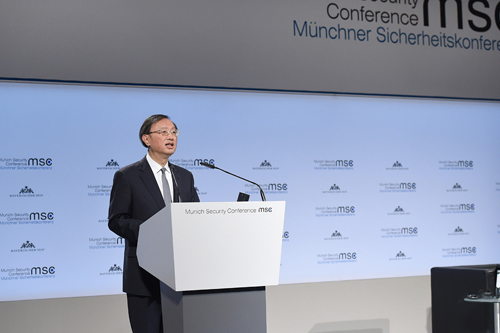
In Munich, China shows positive role in global politics
If the Munich Security Conference acts as a barometer to gauge world politics, this year has shown quite contradictory trends: confrontation and cooperation, and unilateralism and multilateralism.
2019-02-20 -
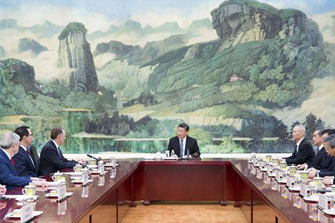
US shows ‘greater pragmatism’ after trade war’s impact
Chinese President Xi Jinping met with top US trade officials on Friday, after the latest round of China-US trade negotiations concluded in Beijing, offering support from China's top leadership for the ongoing talks aimed at resolving the trade war between the world's two largest economies.
2019-02-20 -
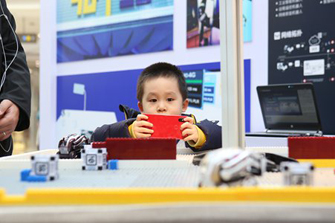
China aims at further opening up of high-end industries
China's manufacturing will feature the pursuit of high-quality growth and further opening-up in designated areas such as plane making and shipbuilding, the head of the Ministry Information and Industry Technology (MIIT) said on Tuesday.
2019-02-19 -
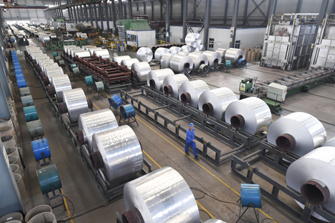
Past year's performance gives Chinese economy buoyancy in 2019
On January 21, when the travel rush for the traditional Chinese New Year holiday began, the National Bureau of Statistics (NBS) released the 2018 economic figures. The data have met the official growth target and shown the domestic economy's resilience despite volatility.
2019-02-19 -

Content is king for Chinese online streaming platforms
An industry report from China Netcasting Services Association suggests that the country's Internet audio and video industry experienced a boom last year, with its market size growing by nearly 40 percent in 2018.
2019-02-19 -
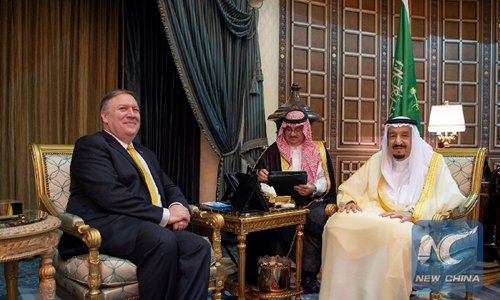
Failed conference ‘a lesson’ for the US
A US-hosted conference in Warsaw to pressure Iran received a lukewarm response from US allies, with Chinese analysts saying this could be a lesson for the Trump administration to rethink its unwise hostile policy toward Iran.
2019-02-18 -
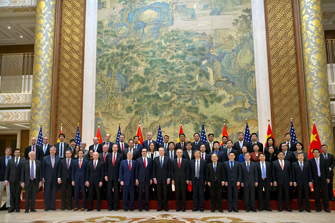
China and U.S., both play a different kind of 'football'
After two weeks since Chinese Vice Premier Liu He finished his visit to the U.S., the latest round of Sino-U.S. trade talks wrapped up in Beijing on February 15 with a positive tone.
2019-02-18 -
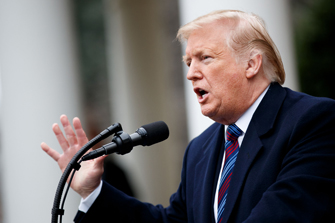
Wang Peng: Trump to declare national emergency
U.S. President Donald Trump plans to declare a national emergency to find the extra funds needed to build his long-promised "Mexico Border Wall," which, as American media is predicting, creates the prospect of a new court battle.
2019-02-18 -
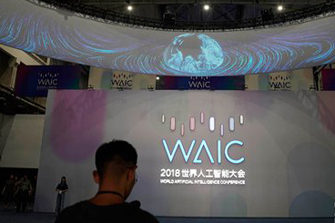
Beijing readies for possible high-tech Cold War
In its latest move to maintain leadership in the high-tech sector, the US on Monday rolled out a plan to give artificial intelligence (AI) more priority and resources, a move that Chinese observers warned may represent the formal launch of a new high-technology Cold War.
2019-02-18 -
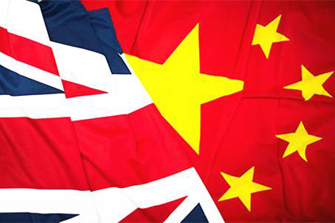
John Ross: How will Brexit crisis affect China-UK economic ties?
When Britain voted in the 2016 Brexit referendum, there were many in Chinese media who naively thought, “Well, that is a democratic decision. Britain will leave the EU.” However, critical issues in the West, as in other societies, are not decided by formal democratic processes but by power and money and the clash of powerful social forces. Therefore, the referendum did not resolve issues but unleashed the deepest British political crisis since World War II.
2019-02-15 -
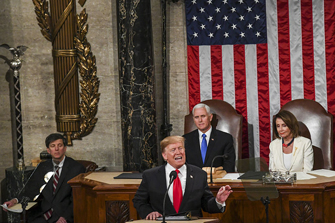
Wang Peng: Domestic priorities reigned in Trump's State of the Union address
U.S. President Donald Trump's second formal State of the Union address took place on February 5. As American media noted, this speech was delayed by two weeks amid the longest government shutdown in history and it took place as the president and Congress were trying to find a solution to avert another shutdown on February 15.
2019-02-15 -

Ding Gang: Turkey gropes between West and Islam
Well-known Turkish writer Ferit Orhan Pamuk used the word hüzün to express the melancholy of modern Turkey. He used it to indicate the pain and sorrow over a loss.
2019-02-15 -

US likely to withdraw its troops from Syria in weeks
The United States is likely to start withdrawal of ground troops from Syria within weeks, but the exact timing depends on the situation in Syria, said the top commander overseeing US forces in the Middle East.
2019-02-15 -

John Ross: The U.S. is learning a trade war is truly ‘lose-lose’
The new round of high-level economic and trade consultations between China and the United States started in Beijing on Thursday morning against a background whereby the world, and the U.S., now has a more accurate understanding of the consequences of a "trade war".
2019-02-15 -
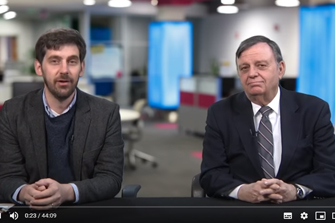
William Jones: Debunking the myths about China
Editor’s notes: With China-U.S. trade talks underway at the White House on January 30-31,2019, William Jones, Washington Bureau Chief for the Executive Intelligence Review, and Non-resident Senior Fellow of Chongyang Institute for Financial Studies at Renmin University of China, was interviewed by LaRouchePAC Website, discussing the urgent need for a commitment to “win-win” relations between the United States and China, and the necessity of debunking the myths that Americans are being told about China and its commitment to science and technological progress. The following is an excerpt of the interview.
2019-02-15
























































































 京公网安备 11010802037854号
京公网安备 11010802037854号





